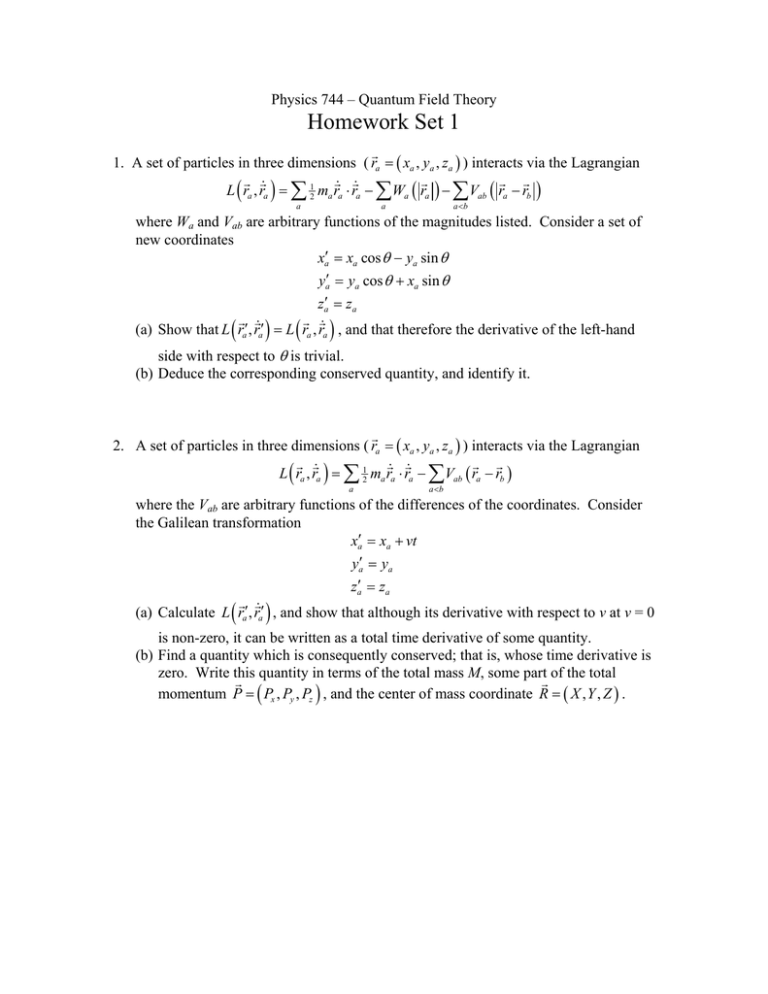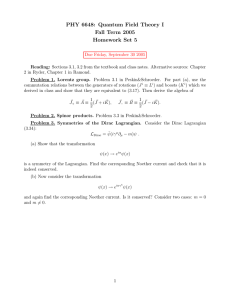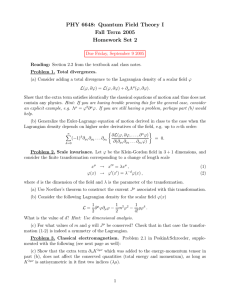Homework Set 1
advertisement

Physics 744 – Quantum Field Theory Homework Set 1 1. A set of particles in three dimensions ( ra xa , ya , za ) interacts via the Lagrangian L ra , ra 12 ma ra ra Wa ra Vab ra rb a a b a where Wa and Vab are arbitrary functions of the magnitudes listed. Consider a set of new coordinates xa xa cos ya sin ya ya cos xa sin za za (a) Show that L ra, ra L ra , ra , and that therefore the derivative of the left-hand side with respect to is trivial. (b) Deduce the corresponding conserved quantity, and identify it. 2. A set of particles in three dimensions ( ra xa , ya , za ) interacts via the Lagrangian L ra , ra 12 ma ra ra Vab ra rb a a b where the Vab are arbitrary functions of the differences of the coordinates. Consider the Galilean transformation xa xa vt ya ya za za (a) Calculate L ra, ra , and show that although its derivative with respect to v at v = 0 is non-zero, it can be written as a total time derivative of some quantity. (b) Find a quantity which is consequently conserved; that is, whose time derivative is zero. Write this quantity in terms of the total mass M, some part of the total momentum P Px , Py , Pz , and the center of mass coordinate R X , Y , Z . 3. Two particles are moving in one dimension with Lagrangian L 12 Mx12 2Mx22 12 M 2 x12 4 x1 x2 10 x22 (a) Find a change of variables x1 , x2 y1 , y2 so that the Lagrangian, rewritten in terms of the y’s, takes the form L 12 M y12 y 22 12 K ij yi y j what is the matrix K? Note that Kij must be symmetric, so the coefficient of y1y2 must be cut in half to deduce K12 = K21. (b) Find the eigenvalues of K and the corresponding orthonormal eigenvectors. If the eigenvalues of K are complicated, then either you or I have made a mistake. (c) Find a change of variables y1 , y2 z1 , z2 such that the Lagrangian now takes the form L 12 M z12 z22 12 k1 z12 12 k2 z22 (d) What are the normal frequencies of this system?

